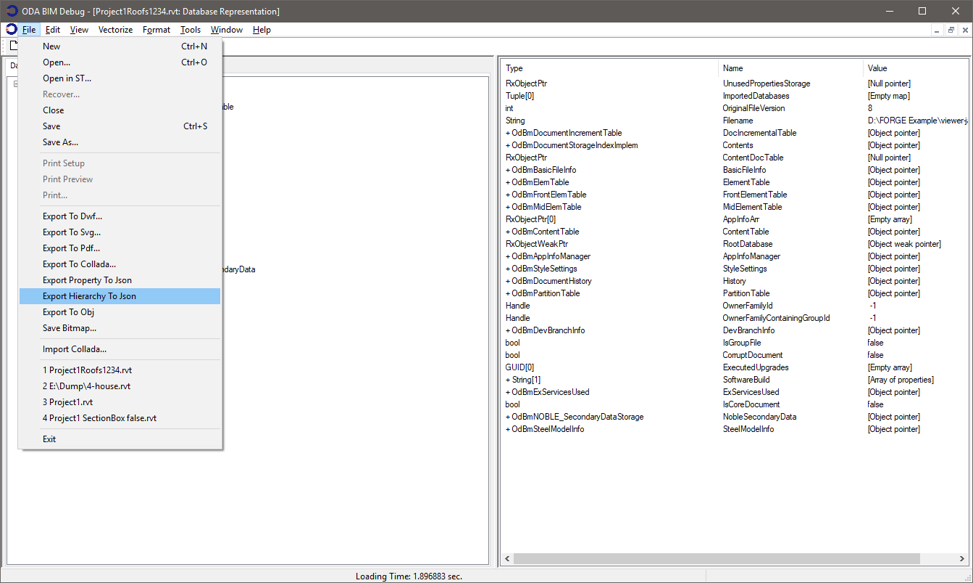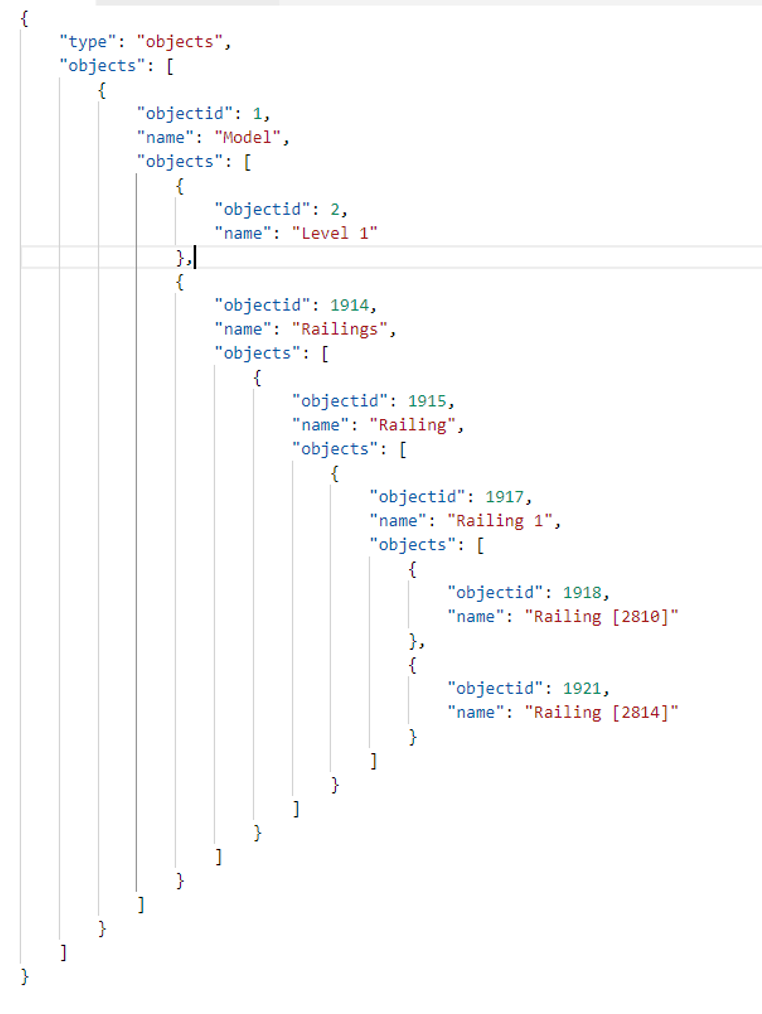This is the second article in a series about exporting .rvt/.rfa files to .Json files. For the first article, click here.
All elements of an .rvt file model have the following hierarchy of elements:

Category
This is a predefined list of classifications to which all elements of the .rvt file belong, each of which must belong to one of the categories. The list of categories is fixed and cannot be changed.
Family
All elements of an .rvt file belong to a specific family. A family is a class of elements belonging to a certain category. The family includes two main types:
- System family (system) — Geometry objects whose behavior and characteristics are known in advance and cannot be changed.
- Family of components — Geometry objects whose behavior and characteristics are created and can be edited by the user.
Type
This is a preserved and named variant of the family, usually based on standard sizes or other generally accepted characteristics.
Instance
This is the actual item in the model or project. Depending on the definition of the category and family, an instance may have unique properties that are not type-controlled.
Exporting the Hierarchy to a JSON Format File
To export the hierarchy of objects:
- Open OdaBimApp and load any .rvt file.
- Choose File -> Export hierarchy To Json.
- Select the path and name for the resulting .Json file.

The result of exporting the hierarchy is a .Json file with this structure:



